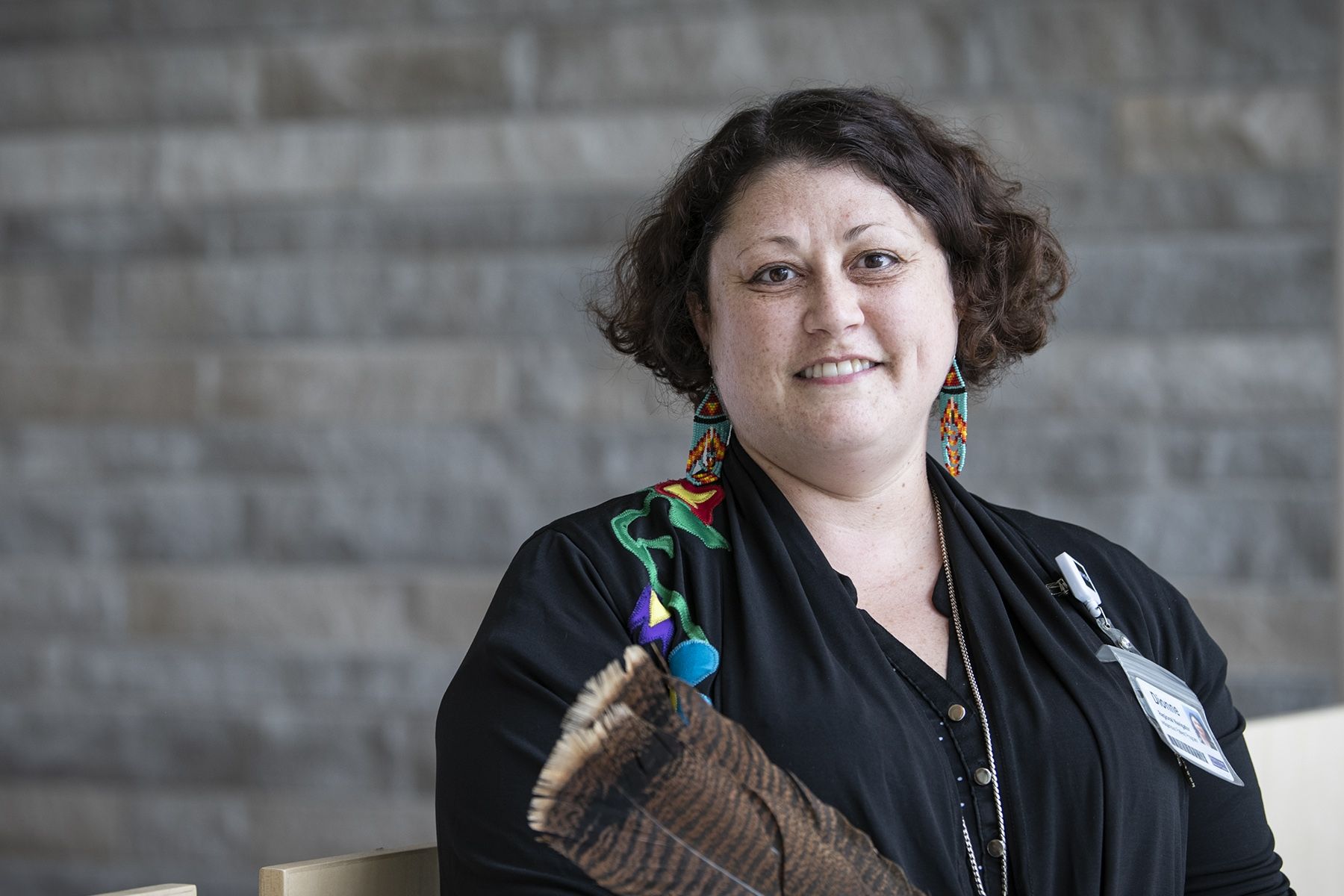
Without truth, there can be no reconciliation.
That’s one of the messages Dionne Nolan is hoping to spread this National Day for Truth and Reconciliation.
Nolan is the Indigenous navigator and works with cancer patients and their families. The main focus of her role includes supporting Indigenous patients and families by going to appointments, explaining medical information, making home visits, finding spiritual care, and advocating on their behalf.
“Mino-pimatisiwin means ‘the good life’ in Anishinaabemowin. It is holistic and balanced in the four realms of human experience. Physical, emotional/social, spiritual and intellectual/mental,” Nolan explains. “We are whole health practitioners. We offer what mainstream health care cannot.”
Nolan is Anishinaabe and says her love for her culture is one of the reasons why she wanted to help her community.
“I’ve always been a bridge builder, a good communicator, an empathic listener and I strive to develop healthy relationships. Following my heart lead me to be a helper. My love for my culture and my community keeps me going, even on hard days.”
For many Sept. 30 will be a hard day. While National Day for Truth and Reconciliation aims to honour the children who never returned home and survivors of residential schools, Nolan feels healing will only occur once Indigenous Peoples can share their whole truth.
“Every single Indigenous person alive today is a survivor or related to a survivor of these so called schools, or the Sixties Scoop or the Millennium Scoop. Every single Indigenous person alive today carries that trauma within their blood. That pain is burned into our hearts. The truth is anger is pain and grief is pain.”
That’s why she says it’s so important for Indigenous Peoples to get the opportunity to speak up in an honest way, without judgement or fear, and for Canadians from coast to coast to listen.
“Truth will free those more than 10,000, and the number keeps growing, children buried at residential schools. Truth telling will free us to move forward, and to move forward we need to tell the whole truth about what is going on. This isn’t in the past, mind you, this is right now. We are a whole group of people whose language, culture and identity the church and government tried to erase.”
To help make Kingston Health Sciences Centre (KHSC) a more welcoming and inclusive place, an Inclusion Steering Council was formed in 2021.
Nolan is a member of the council which aims to improve diversity, equity, access to opportunities, recognition, and celebration of all people, regardless of who they are or where they’re coming from.
KHSC also has a goal to identify and address gaps in health care, to make sure everyone who turns to the organization for care will be treated with compassion, respect and dignity.
Nolan has high hopes her role as a navigator will one day turn into an Indigenous wellness department. Not only at KHSC, but also at health-care organizations across the country.
“We need spiritual care practitioners who are Indigenous. We need an entire department that focusses on relationships with Indigenous communities, especially the urban Indigenous community of Katarokwi. We need a department to oversee all things Indigenous. That is my dream.”
Until then, she will continue to help the patients and families she serves at KHSC find their mino-pimatisiwin.
“Every day I go home knowing I made someone’s day a little better and every day I learn to be better than I was the day before. I am grateful for each new day that I get to be a helper. It is through giving that I feel we can truly receive.”
KHSC sits on the ancestral lands of the Anishinaabe and Haudenosaunee and serves the community of Tyendinaga and the local Katarokwi community, as well as several northern Indigenous communities along the coast of James Bay such as Moose Factory, Attawapiskat and Kashechewan through our long-standing partnership with the Weeneebayko Area Health Authority.
Gallery


Dionne Nolan has been an Indigenous navigator for more than six years. Nolan is Anishinaabe and says her love for her culture is one of the reasons why she wanted to help Indigenous cancer patients and their families.



